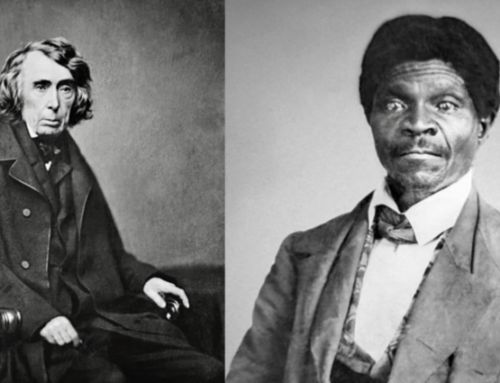 “Those who claim to oppose The Enemy would do well not to hinder us.”—Frodo Baggins, to Captain Faramir of the Minas Tirith Guard
“Those who claim to oppose The Enemy would do well not to hinder us.”—Frodo Baggins, to Captain Faramir of the Minas Tirith Guard
“It would be improper to require the consent of the National Legislature [for an amendment], because they may abuse their power, andrefuse their consent on that very account.”—George Mason, summer 1787, Philadelphia Convention
“Whensoever the General Government assumes undelegated powers, its acts are unauthoritative, void, and of no force; that to this compact each State acceded as a State, and is an integral party, its co-States forming, as to itself, the other party: that the government created by this compact was not made the exclusive or final judge of the extent of power delegated to itself, since that would have made its discretion, and not the Constitution, the measure of its powers; but that, as in all other cases of compact among powers having no common judge, each party has an equal right to judge for itself…”—Thomas Jefferson, October, 1798 draft of the Kentucky Resolutions
Appeal to Heaven versus Appeal to Law
Last week on his call-in radio program, conservative commentator Mark Levin disparaged the spreading push by states’ rights activists like The Imaginative Conservative’s friend Kevin R.C. Gutzman for “nullification” by state legislatures of overreaching federal legislation. Sadly, Levin chose to slur the notion as a fundamentally “neo-Confederate” desideratum, one he views as, among other dreadful things, “nullifying” his recent push for a convention of the states. Now, that’s not nice—or true—at all. Some sharp observers have taken notice of Levin’s unkind—and untrue—accusations, but they’ve missed some of the acute angles. Everyone seems to agree that a nullification-supporter de facto sets himself against all Constitutional procedures. Errantly.
Notwithstanding the presumptions of both Levin and his rivals, there exists zero genuine opposition between nullification on the one hand, and on the other, Levin’s rightminded push for a convention of the states. Again, I endorse strongly his push for a states convention (as well as the prompt to nullification), upon whose manner of procedure I will be, in a few weeks here on The Imaginative Conservative, presenting an article exposing the ideas of my friend and mentor Mike Rappaport, the single Originalist legal scholar in the country to have endorsed the type of state convention that Levin claims will obviate the dangers of the much feared “runaway convention.” (To my knowledge, Levin does not even know of Rappaport’s helpful proposals. He should.)
Otherwise, I regret to have realized that in this and other matters over the past eighteen months, I have come increasingly to disagree with Levin, a proposition which I would not have found believable merely two years ago. Last month, for instance, I published here an article called Madison’s Nonsense Coup Against Montesquieu, taking issue with Levin’s deep mischaracterization of James Madison as a “faithful” Montesquieuan(see Madison’s counter-Montesquieu Federalist Papers #10, #39, and #51). His Federalist project was more accurately the overcoming of Montesquieu!
That topic is not actually unrelated to this one.
But Mr. Levin is a bona fide conservative, and I urge the followers of Mr. Gutzman and the nullification crowd to reconcile with him. All salubrious hands are needed on deck, in 2014. The late hour furnishes reason to dispense with petty squabbles..
First, though, the misconception must be disabused. Not only was nullification roundly advocated by such “proto” [??] Confederate personages as Thomas Jefferson and James Madisonin the Kentucky and Virginia Resolutions of 1798-1799, but also does a nuanced, bifurcated view of the idea emerge from those documents (reacting against federal laws restricting free speech under the Adams Administration). That is, both a strong version and a weak version of the doctrine of nullification proceed from the multiple available drafts of the two resolutions. The distinction, which itself suggests the concomitance between the processes of amendment and nullification, deserves a little attention.
The version of nullification actually appearing in the final Kentucky and Virginia Resolutions comprises the weak form of the doctrine. The irony is thick in the context of our intra-conservative dustup: the so-called “neo-Confederate” doctrine as articulated by Jefferson and Madison winds up proffering a sort of “back door” and not much more, to the selfsame Article V method of amending the Constitution—one by the States—which Levin is himself calling for, these days! Because there exists a strong conceptual similarity between the goals of amendment and nullification—only their respective procedures differ—it is odd that Levin and his “opponents” fail to grasp the concert of their goals. The final draft of both the Kentucky and Virginia Resolutions prescribes merely that the other states of the Union join Kentucky and Virginia “in requesting their repeal at the next session of Congress.” This softer form of nullification sounds like an unorthodox amendment process more than revolution. And that’s the point. One does not stretch the imagination much, then, to capture the close connection between weak nullification and Article V state Constitutional conventions, the former being more or less the first and most important phase of the latter. Procedurally speaking, petitioning Congress by means of textual Constitutional arguments (as weak nullification does) is hardly a prelude to revolution. As one can see, the weak version of nullification remains firmly ensconced in the category of constitutional remediation or textual restoration that one might call “an appeal to the rule of law.” It falls comfortably within the jurisdiction, that is, of the current Constitutional regime.
However, the strong version of nullification—which calls on individual states to nullify unilaterally federal law they see as unconstitutional, without a view to any sort of procedurally bound league of states petitioning Congress axially—does not indeed fall within any sort of appeal to the rule of law. Yet, all the same, the republican citizen should still be prepared to embrace it under the right circumstances, if it comes to that. I don’t want to throw the strong form beneath the bus. Vice President Jefferson toyed with the forceful notion, in 1798, in early drafts of the Kentucky Resolution (just as he initially included all-out secession language naturally concomitant and pursuant to such strong nullification!). Why shouldn’t we (at least toy with it)?
Strong nullification falls, along with secession and revolution, into a category of constitutional remediation that John Locke (borrowing exclusively from the logic of Catholic thinkers) called “the appeal to Heaven.” That is, the rule of current law by such a means is entirely obviated, superceded. The means is “extra-legal,” to borrow nullification maven Tom Woods’ turn of phrase. On this model, the current legal regime is taken to violate the more sovereign Natural Law—and thereby the rights of citizens (usually, it also violates its own propositions). Thus, no appeals conceivably can be made to extant constitutional procedures or codified law in remediating the regime. Only Heaven may be prayed to that end. Hence, the “tree flag,” and the peerless logic of the appeal to Heaven.
Here’s the thing, Mr. Levin: this category of appealing to Heaven is precisely the sort which reified our great nation. Jefferson, the architect of just such an appeal, together with its framework, remained every bit mindful that the strong (unlike the weak) version of nullification is often a prelude to secession, which itself is often a prelude to revolution.
Yet, the endorsement of any of these manners of remediation properly seen as extrinsic to the rule of law is not a fortiori “neo-Confederate” (a mud-slinging term if ever there was one!). Call it “revolutionary,” at worst, or “Jeffersonian” at best. But admixing a defense of stasis—as Levin sees it—with slavery imagery calumniates fellows on the Right who hate slavery every bit as much as he does, presumptively. (They hate big government a little more than Levin, evidently.)
On the other hand, anyone who carte blanche closes the door upon the entire genus of “the appeal to Heaven” fairly and fully deserves the charge of utopian. Why? Because, as Jefferson said, “the Earth belongs in usufruct to the living.” We live in a republic, not paradise. They are ever distinct. And we are all responsible during the present for keeping the imperfect American republic that Jefferson helped to build, the memoirs of history alone being no vanguard of the common good, no palladium of its own lessons, and no usufructuary padlock against incursion by the Vandals at (or inside) the gate. Nor do the words of the Declaration or the Constitution rise up and dispatch their dissimulators on their own behalves. Jefferson, that recent revolutionary, remained cognizant for the rest of his life of the furious vigilance and the popular enforcement necessary to maintain republics: classical, not castrated vigilance (whereby the watchman keeps the look-out, but without sidearms or flares).
Rather, our watchfulness must be one that is prone to action. Why else would Jefferson have written of the Shays’ Rebellion:
God forbid we should ever be twenty years without such a rebellion. The people cannot be all, and always, well informed. The part which is wrong will be discontented in proportion to the importance of the facts they misconceive. If they remain quiet under such misconceptions it is a lethargy, the forerunner of death to the public liberty. We have had thirteen states independent eleven years. There has been one rebellion. That comes to one rebellion in a century and a half for each state. What country ever existed a century and a half without a rebellion? And what country can preserve its liberties if their rulers are not warned from time to time that their people preserve the spirit of resistance? Let them take arms. The remedy is to set them right as to facts, pardon and pacify them. What signify a few lives lost in a century or two? The tree of liberty must be refreshed from time to time with the blood of patriots and tyrants. It is its natural manure.
Any self-billed “conservative” who takes the three “appeals to Heaven” altogether off the table probably fails fully to mean to effectuate even the less drastic appeals to the Constitution, for remediation. Indeed, the two categories—the appeal to Heaven and the appeal to law—relate to one another as distinctions of degree, as well as distinctions of kind.
Just like unheeding endorsement of secession’s disunity is impolitic, so is the like manner of its repudiation. From France, Jefferson tempered the 1787-1788 ratification debate with epistolary grace, admonishing Antifederalists of the former proposition, and Federalists of the latter. One awaits the emergence of Jefferson’s sagacious mediation reborn: once more, convention of the states and nullification are both good avenues of diminishing government!
One would expect Levin to understand the profundity of the American ailment’s progressed stage. He talks about it every day, after all. Yet, he misses that our republic-in-name-only deserves the Republicans-in-name-only in Congress that he bemoans; they pertain exclusively to it. While one lauds and supports Levin’s valuable labors to muster up a convention, he must come to terms with the root cause of all the tyranny which presently besets the conservative mind: popular vice which breeds the distraction which itself breeds statism. It is the opposite of “salutary neglect,” the boon to the makers of the nation; citizen’s neglect is a boon, on the other hand, to the breakers and takers of the nation. In James Madison’s words on June 20, 1788 at the Virginia Ratifying Convention: “Is there no virtue among us? If there be not, we are in a wretched situation. No theoretical checks—no form of government can render us secure. To suppose that any form of government will secure liberty or happiness without any virtue in the people, is a chimerical idea.”
And while it continues to be reasonable, for a time, to explore quarter- and half-measures, in the name of peace, Levin’s brand of pacifism is fast assuming the pallid complexion of the most frequent historical instance of the phenomenon: running from even the mere deliberation of what seems an inevitable conflict. A successful Article V convention of the states would indeed amount to more than a half-measure, I grant. But all friends of liberty must acknowledge that full-scale nullification should be on the horizon, as well. Ingratiating oneself to the the appeal to Heaven, perhaps, has less to do with overcoming any sort of tension with the appeal to law that it involves, yet more to do with the appeal to reason that should undergird either approach, when properly enjoined. And categorical claims for or against broad rationalistic categories will never suffice, on that basis. In short: support both the states’ convention and nullification. As Thomas Jefferson wrote from the Presidency in 1804, the union of a single republic is not indispensable to American happiness; union among liberty-lovers—as disparate as the spectrum between Kevin R.C. Gutzman and Mark Levin—however, is. Opponents of tyranny unite, affirming one another’s solutions wherever possible!
Books on the topic of this essay may be available from The Imaginative Conservative Bookstore.







Mr. Gordon, Another thought provoking and disquieting set of deliberations, well done!
Your excellent line “classical, not castrated vigilance (whereby the watchman keeps the look-out, but without sidearms or flares).” calls to mind the truth of this enfeebled age well characterized by C.S. Lewis in Abolition of Man:
““we (modern society) make men without chests and expect of them virtue and enterprise. We laugh at honor and are shocked to find traitors in our midst. We castrate and bid the geldings be fruitful.” .
What is one to do in this sterile disgendered age?
Fine idea, as long as we remember nullification or interposition cuts both ways. Sometimes the states need to interpose against the federal government, and sometimes the federal government against the states for the sake of justice. This is what Abraham Lincoln knew, and Harry Jaffa.